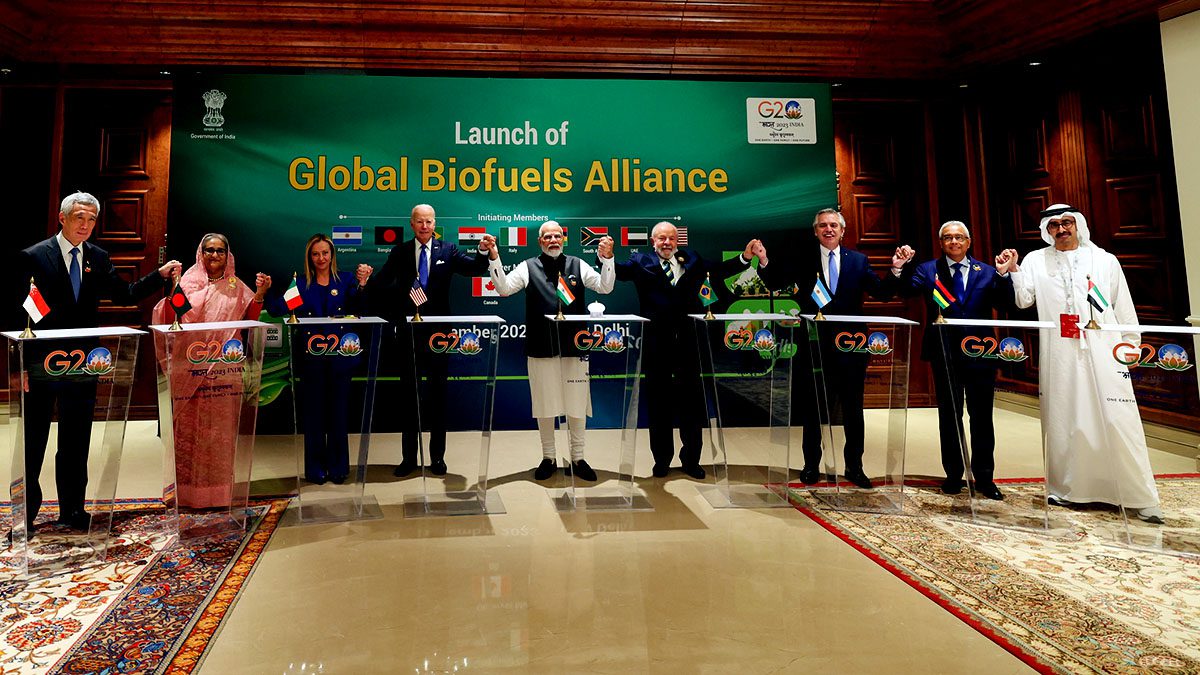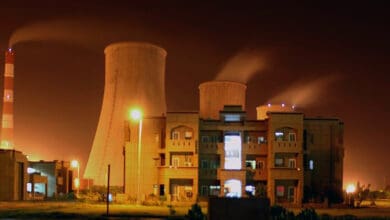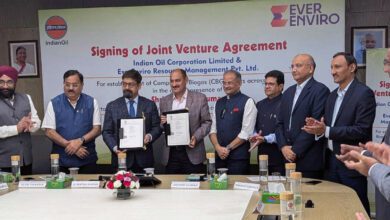In a groundbreaking move that promises to reshape the global energy landscape, India’s Minister of Petroleum & Natural Gas and Housing & Urban Affairs, Hardeep Singh Puri, has declared that India will pave the path to a sustainable future through the Global Biofuels Alliance (GBA). This initiative, spearheaded by Prime Minister Narendra Modi, is set to significantly reduce worldwide dependence on traditional fossil fuels like petrol and diesel.
Expressing his optimism through a series of social media posts, Minister Puri highlighted that the GBA aligns with the ancient Indian principle of ‘Vasudhaiva Kutumbakam,’ emphasizing the interconnectedness of all living beings. By bringing together 19 countries and 12 international organizations, the GBA aims to revolutionize the biofuels sector.
The GBA, under India’s leadership, seeks to unite governments, international organizations, and industry players to promote the adoption of biofuels. With a focus on major biofuel producers and consumers, this initiative strives to position biofuels as a pivotal component of the global transition to sustainable energy sources while fostering job creation and economic growth.
Minister Puri noted that the launch of the GBA during the G20 Summit represents a historic moment in the quest for cleaner and greener energy. He expressed gratitude to key figures like Jennifer Granholm, US Secretary of the Department of Energy; Alexandre Silveira, Energy Minister of Brazil; and Dr Evandro Gussi, President & CEO of UNICA Brazil, for their pivotal roles in nurturing the seeds of the Global Biofuels Alliance.
The GBA enjoys support from G20 nations and prominent energy-related global organizations such as the International Energy Agency (IEA), International Civil Aviation Organization (ICAO), World Economic Forum (WEF), and World LPG Association, among others. This alliance is expected to fortify global biofuels trade and best practices, allowing members to address the Energy Quadrilemma successfully. Moreover, it is poised to transform Indian farmers from ‘Annadatas’ (food providers) to ‘Urjadatas’ (energy providers), thereby offering an additional source of income. India has already invested ₹71,600 crore in its farmers over the past nine years. With the implementation of E20 by 2025, India is projected to save approximately ₹45,000 crore in oil imports annually, along with 63 million metric tons of oil.
The GBA’s mission extends beyond borders. It will support the worldwide development and deployment of sustainable biofuels through capacity-building exercises, technical assistance for national programs, and the sharing of policy insights. The alliance aims to create a virtual marketplace that connects industries, countries, ecosystem players, and stakeholders, facilitating the mapping of demand and supply while connecting technology providers with end-users. Additionally, it will foster the development, adoption, and implementation of globally recognized standards, sustainability principles, and regulations to incentivise biofuels adoption and trade.
For India, the GBA represents a multi-faceted opportunity. As a tangible outcome of its G20 presidency, the alliance will enhance India’s global standing. It will encourage collaboration and open doors for Indian industries to export technology and equipment. Furthermore, it will expedite India’s ongoing biofuels programs, such as PM-JIVAN Yojana, SATAT, and GOBARdhan scheme, thereby increasing farmers’ income, creating job opportunities, and contributing to the overall development of India’s ecosystem.
The global ethanol market, valued at $99.06 billion in 2022, is projected to grow at a CAGR of 5.1% by 2032, surpassing $162.12 billion. According to the IEA, there is a 3.5-5x growth potential in biofuels by 2050 due to Net Zero targets, offering significant opportunities for India.













